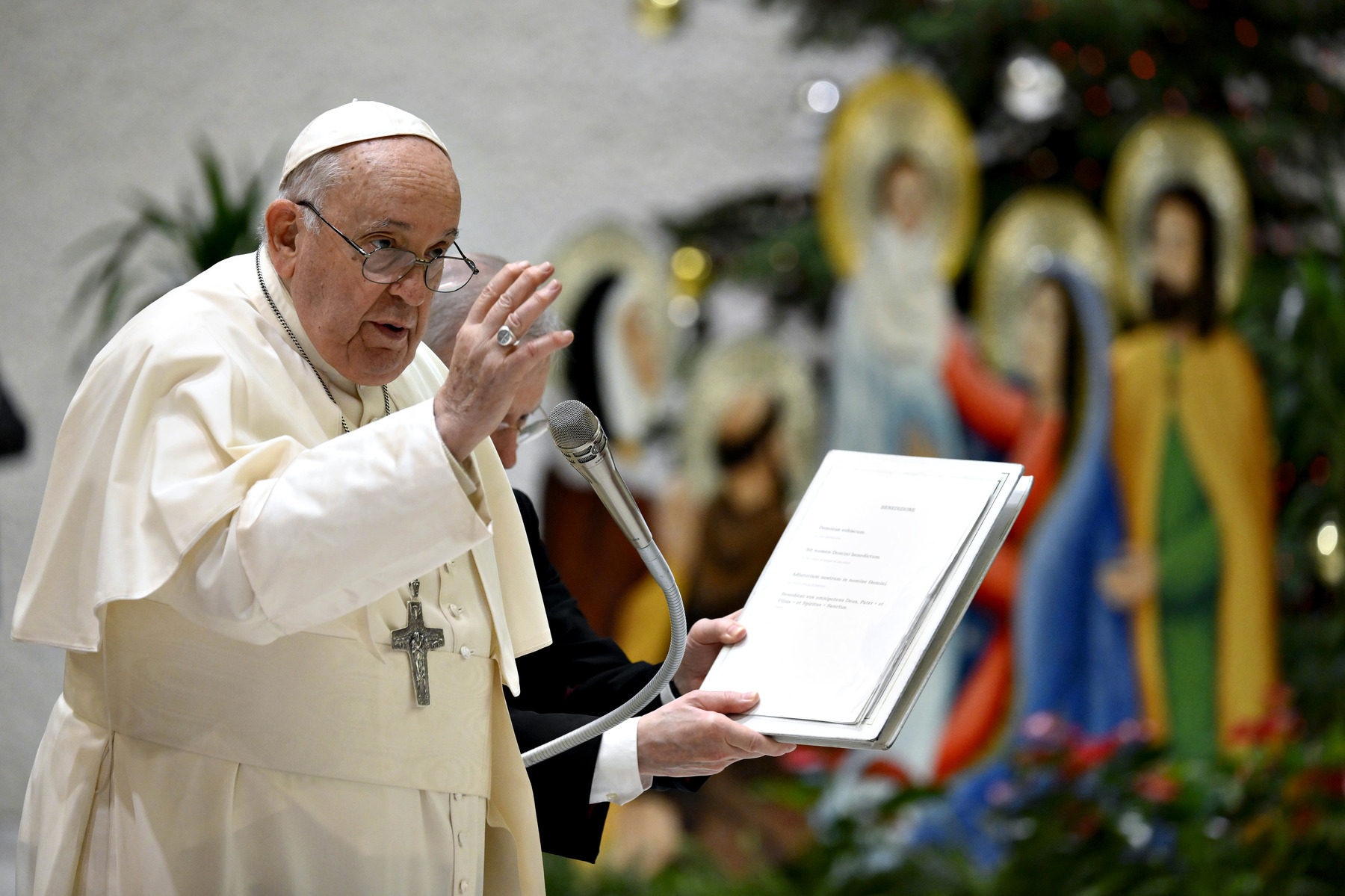The Vatican published a declaration on Monday addressing if, when and how priests or deacons can bless same-sex couples. Pope Francis, the head of the Roman Catholic Church since 2013, has been fielding questions about this topic for years, and his latest response quickly sent shockwaves through the church and broader mainstream outlets.
Blessings of people are allowed, the pope ruled — but same-sex unions remain excluded.
The text focused on clarifying the wide-ranging meaning of what a Catholic blessing can encompass. There are formal sacramental blessings, like that given during marriage rites. There are also less formal blessings given to people, objects and places. The pope essentially said that same-sex couples are not excluded from these latter blessings, but that the church still cannot accept their unions.
Still, Father James Martin, a Jesuit priest and editor-at-large of America Magazine, published monthly by the Jesuits of the United States, called the declaration a “major step forward in the church’s ministry to LGBTQ people” in a social media post. Martin is an outspoken advocate for LGBTQ+ people in the church — he wrote “Building a Bridge,” a book about the issue, and met with Pope Francis in 2020 to discuss the topic.
“In short, yesterday, as a priest, I was forbidden to bless same-sex couples at all,” Martin said in a post on X, formerly Twitter. “Today, with some limitations, I can.”
What did the text actually say?
- “When people ask for a blessing, an exhaustive moral analysis should not be placed as a precondition for conferring it.”
- “One should not prevent or prohibit the Church’s closeness to people in every situation in which they might seek God’s help through a simple blessing.”
- “This blessing should never be imparted in concurrence with the ceremonies of a civil union. … Nor can it be performed with any clothing, gestures, or words that are proper to a wedding.”
- “There are several occasions when people spontaneously ask for a blessing, whether on pilgrimages, at shrines, or even on the street when they meet a priest. … Such blessings are meant for everyone; no one is to be excluded from them.”
In recent months, bishops in several European countries have permitted liturgical blessings for same-sex couples. Earlier this year, Catholic bishops in Germany voted to bless same-sex unions, in addition to the right for women to give homilies and women’s ordination. The pope’s response does not specifically condone these actions and held the church’s definition of marriage as the “exclusive, stable, and indissoluble union between a man and a woman, naturally open to the generation of children.”
It is not fully clear how this new statement will affect LGBTQ+ Roman Catholics in the United States. The U.S. Conference of Catholic Bishops is starkly divided around Pope Francis’ agenda, and the disagreements have grown over the course of his papacy. In November, American bishops met in Baltimore and there were contentious speeches, particularly around evangelization efforts, for and against the pope’s direction for the church. In recent months, one bishop was removed from his position after he made comments rejecting Pope Francis’s guidance. Separately, the Vatican recently stopped paying for a conservative American cardinal’s residence in Rome because of the cardinal’s outspokenness against Francis’s teaching on Communion for divorced and remarried people and blessings on same-sex relationships.
The conference of bishops on Monday posted a statement in response to the Vatican’s declaration: “The Church’s teaching on marriage has not changed, and this declaration affirms that, while also making an effort to accompany people through the imparting of pastoral blessings because each of us needs God’s healing love and mercy in our lives.”





